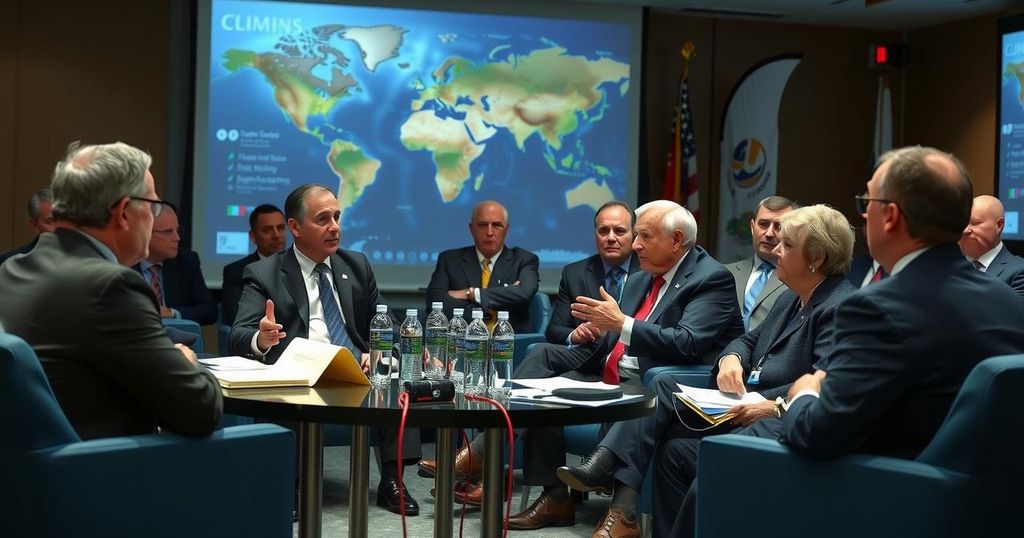Climate change significantly threatens national security by disrupting food security, exacerbating conflicts, and taxing military resources worldwide. The article discusses how increasing environmental pressures, illustrated by the situation in Somalia, challenge military effectiveness and necessitate shifts in defense policy. It underscores the urgent need for the UK to develop integrated strategies addressing these climate-security implications to maintain national resilience and operational readiness.
The recent discussions surrounding climate change and national security emphasize the substantial impact of environmental shifts on global and domestic stability. During the COP29 conference in Baku, although significant media attention focused on climate issues, the pressing narrative of climate change as a critical threat to security went largely unacknowledged. Current realities reveal that agricultural disruptions, driven by extreme weather events, aggravate economic inequalities, fostering conflict and displacing communities globally.
The situation in Somalia exemplifies the intersection of climate challenges and security concerns, with climatic changes disrupting humanitarian efforts and enabling militant groups to exploit vulnerable populations. Military operations experience additional burdens as personnel and resources are diverted to assist in disaster responses, detracting from essential national defense priorities. Furthermore, extreme weather events have inflicted severe damage on military infrastructure, underscoring the urgent need for a reevaluation of operational readiness in the face of climate-induced crises.
In the UK context, the armed forces face a growing number of demands stemming from climate events, including increased humanitarian assistance missions and operational engagements at home. Military training is frequently disrupted due to heat, while critical infrastructures, such as air bases, are physically affected by climate impacts, leading to costly operational downtimes. The implications of these disruptions necessitate immediate government action to bolster military preparedness amid these escalating climate threats.
Moreover, climate-driven migration presents a complex challenge that requires comprehensive planning and inter-agency collaboration to effectively address. The UK must not only commit to net-zero initiatives but also ensure the military remains capable of managing security risks associated with climate change. By fostering cross-party cooperation and integrating climate considerations into defense strategies, the UK can enhance its resilience against future climate security shocks, thus ensuring a more secure and prepared nation.
The article addresses the multifaceted threats posed by climate change to national security, particularly focusing on the UK and international military operations. It highlights how environmental challenges exacerbate food insecurity and contribute to conflicts, while also drawing attention to the operational impacts on military forces. The situation in Somalia serves as a case study illustrating these intersecting issues, indicating that climate change affects military capabilities by necessitating humanitarian responses rather than defense training and readiness. The broader implications for military infrastructure and the urgency required from governments are pivotal themes discussed in this context.
In summary, climate change represents an escalating threat to national and global security that demands urgent attention and action. The UK government must adopt a comprehensive strategy that integrates climate concerns into national defense frameworks and emphasizes preparedness for climate-induced disruptions. By fostering a collaborative approach encompassing defense, development, and diplomatic efforts, the UK can effectively mitigate the adverse impacts of climate change on security and stability, ensuring readiness for the challenges posed by a changing world.
Original Source: wavellroom.com






